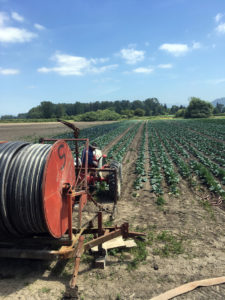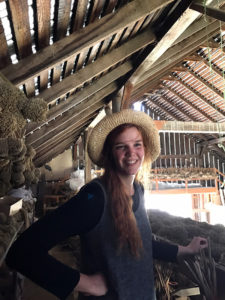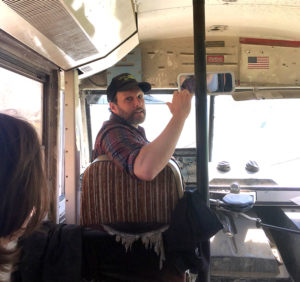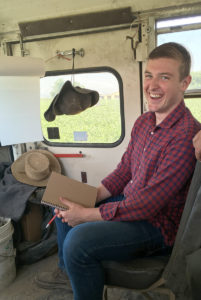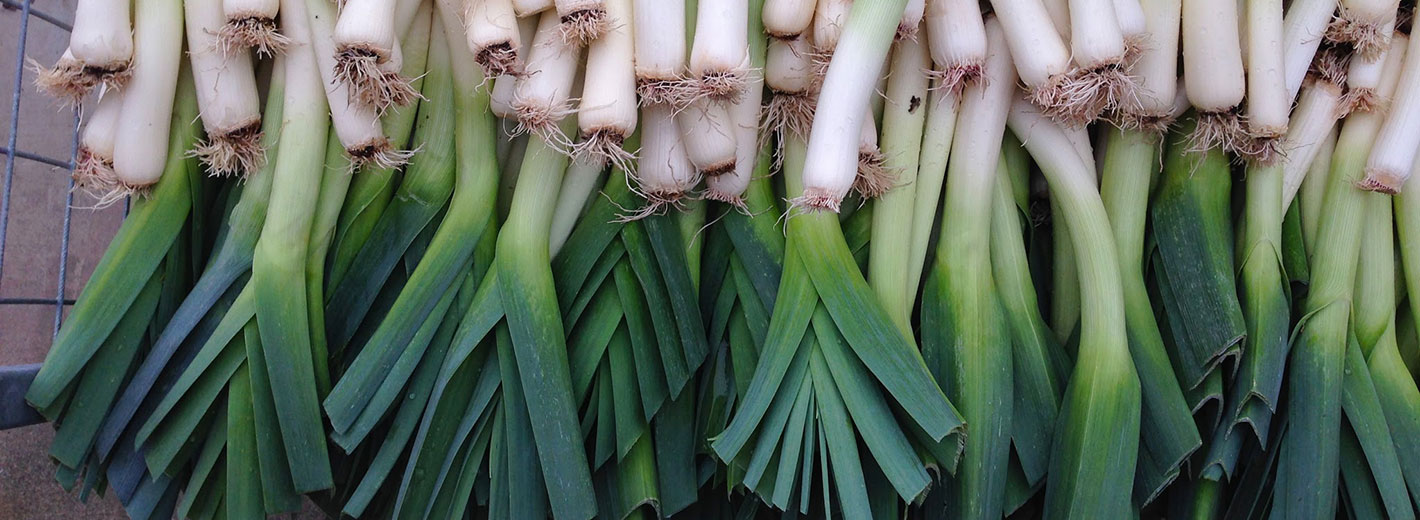
For a Love of Leeks: A Visit to Ralph’s Greenhouse
It doesn’t matter if you’re in California, Florida, or Maine. If you buy an organic leek at the grocery store, there’s a good chance it came from a single farm in Washington — one that, at 280 acres, is a little over half the size of the average American farm.
In 1980, Dutch emigré Ralph de Vries retired from dairy farming to start an organic vegetable garden in Washington’s Skagit Valley, a rural region north of Seattle best known for its annual tulip festival. The family started selling produce once they were growing more than they could eat, and leeks became the specialty of the farm known as Ralph’s Greenhouse. The supposedly retired Ralph invited his son Ray to help him out with some of the bigger orders…and Ray still works there to this day, alongside Farm Manager Tim Terpstra and a seasonal crew of up to 110 people.
Not long ago, Tim himself treated me, Bon Appétit Fellow Peter Todaro, and former-Fellow-turned-Waste Specialist Maggie Kraft to an informative tour.
The farm has become the biggest organic leek supplier in the United States, and it now ships to Whole Foods Markets nationally. But even though they’re growing on a larger scale than ever before, the Ralph’s Greenhouse team still makes time for side projects. When we visited, they were conducting carrot-seed tests with High Mowing, an organic seed purveyor based in Vermont. They also provide space for their employees to grow their own fruits and vegetables. The “greenhouse” in the name, it turns out, refers not to a growing structure but to a farmhouse that happens to be green — but they do have a few actual greenhouses now, too.
Not only has Ralph’s Greenhouse been a steady supplier of picture-perfect produce to Bon Appetit’s Washington accounts, they also occasionally supply our cafés with lovably imperfect produce. By participating in Bon Appétit’s Imperfectly Delicious Produce program (a joint venture with our parent company, Compass Group), Ralph’s Greenhouse has been able to find a home for its under- and oversized, crooked, or otherwise cosmetically undesirable — but still delicious — leeks. Tim even starred in the video introducing the IDP program!
The IDP program works well for Ralph’s, which is almost entirely a wholesale farm and conducts many of its sales through local aggregators and distributors like the Puget Sound Food Hub and Charlie’s Produce. Food Hub Operations Manager Scott Morris and Marketing Coordinator Jade Vantreese. We had met with Scott and Jade at the Food Hub headquarters earlier that day, where we learned that the Food Hub is a cooperative, owned by the participating farmers themselves. This cuts out the middleman and ensures that more of the sale price of each item goes straight into farmers’ and farmworkers’ pockets. The Food Hub also works in tandem with big farms that sell cheaper products and smaller farms that sell more expensive specialty items, so that the former can absorb some of the distribution and operation costs of the latter and both can reach the consumer.
As we toured the farm, Tim pointed out that they cover growing leeks with extra soil to hide them from the sun; this keeps the stems white and tender. Though IDP produce represents a relatively small portion of Ralph’s sales, they still have been able to sell thousands of dollars’ worth of produce through the program that otherwise would have been composted. The leeks that go into IDP tend to be either crooked or oddly shaped; some have had their leaves or roots trimmed incorrectly.
“Leeks obviously still taste the same whether they’re crooked or not,” Tim said. “But grocery stores have a certain standard standard they’re expecting.”
They also sell IDP fennel, generally bulbs that have grown larger than the grocery store standard. The kale for IDP comes from stripping the outer leaves off the plant, which they have to do anyway to let the smaller leaves grow. It’s nice to get paid for produce they’d otherwise have to throw out, Tim said.
So next time you eat an organic leek — perfect or deliciously not — take a second to think about where it came from. It just might have been from Ralph’s.
